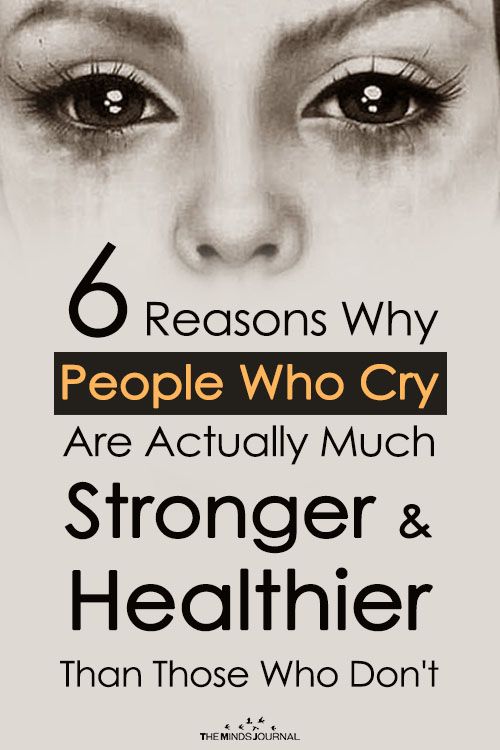Why does one person get choked up over heart-wrenching commercials, while another will barely shed a tear for the death of a loved one? Does the exhortation “Have a good cry” have any physiological or psychological merit?
Researchers have begun studying the science of crying in an effort to help us better understand what human tears mean from social, psychological, and neuroscientific perspectives. Recent studies show that crying is not only perfectly healthy but is also critical for good mental health and stability.
Crying is part of our human emotional package. Crying provides an effective channel and filter for worrisome thoughts and disturbing events. Frequently bottling up your emotions and withholding tears can lead to long-term psychological damage.
Read more: 10 things that chronically unhappy people do & Keep doing?
Here are four reasons why you should let the tears flowCrying relieves stress
Crying relieves stress
Tears serve an important purpose. Emotional tears, shed in moments of intense feeling, carry stress hormones and are a way of getting rid of them
Tears are therapeutic, and crying is cathartic. Thirty years ago, a biochemist found that emotional tears carry more protein than non-emotional tears (e.g. tears from chopping an onion) indicating that important psychological and physiological changes occur within the body when we shed tears.
Experimental psychologist Alex Goetz, the founder of General Health Inc., put it this way:
“Tears serve an important purpose. Emotional tears, shed in moments of intense feeling, carry stress hormones and are a way of getting rid of them. Even if crying embarrasses you, it signals that you’ve reached a level of stress that’s detrimental to your health.”[3]
The physical process of deep, emotional crying involves muscular spasms, rapid intake of breath, and tears, all of which crescendo and then gradually subside. During this process, the body tenses and then relaxes, providing a feeling of release – and stress and its physiological symptoms dissipate.
Read more: If you face these 6 struggles in life: you’re highly intelligent
Crying builds mental toughness
Crying is a way of acknowledging your emotions and facing them head on. Avoiding or ignoring negative feelings can be detrimental to your mental health and could lead to anxiety and depressive disorders. Or, in lieu of crying, you may find yourself employing other, less productive, coping mechanisms including alcoholism, drug abuse, or other kinds of unhealthy compulsive behaviors.
Facing and embracing your emotions and allowing yourself the opportunity to weep for the sake of your own mental health is important and requires courage.
Read more: How to get back up after life kicks you in the teeth
Crying helps you cope and heal
Professor Roger Baker from Bournemouth University believes that crying is the transformation of distress into something tangible, and the process reduces feelings of trauma. The implication here is that when you cry for emotional reasons, you initiate an emotional healing process.
Tears allow you to externalize and symbolize psychological hurt in a physical form. Your tears jump-start your recovery.
Crying fortifies relationships and fosters community
Crying has been scientifically proven to make you feel better. No, it doesn’t solve your problem, changes the situation, or bring people back into your life
Tears are a positive representation of who we are. Our tears demonstrate our deep emotional connection with our world and show that we care.
Crying in front of people exposes your vulnerability and allows others to see that your emotional guard is down. Crying in particularly difficult or sad situations where multiple people are impacted, obliterates emotional walls and affords others the freedom to express themselves. Bonds are forged and strengthened when true friends weep together.
Crying has been scientifically proven to make you feel better. No, it doesn’t solve your problem, changes the situation, or bring people back into your life. But it does provide you with an emotional outlet that begins the healing process, relieves stress, makes you mentally stronger, and fosters community.
So go ahead…let it out.
This piece was first published in Life Hack.














